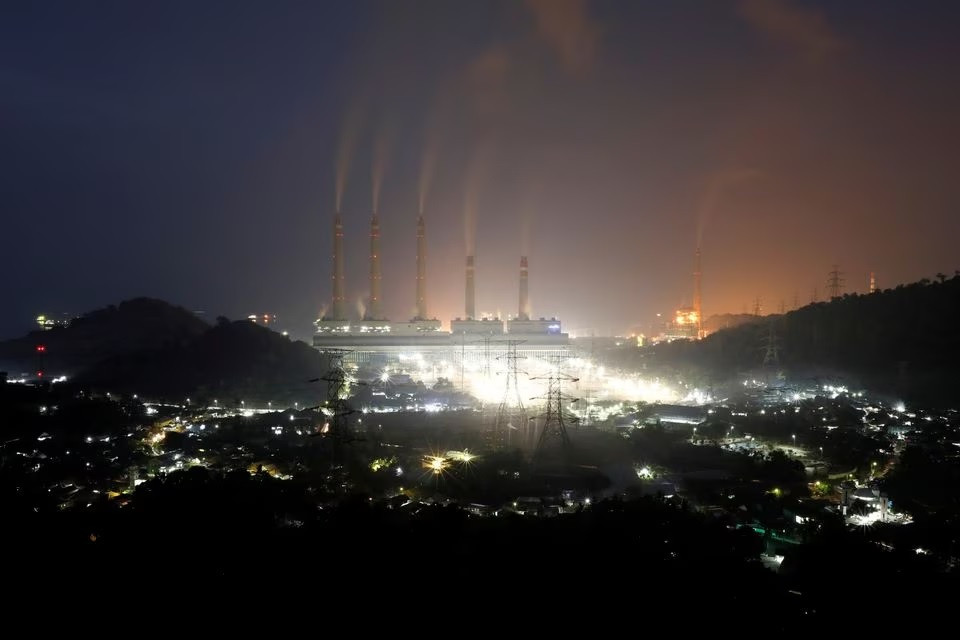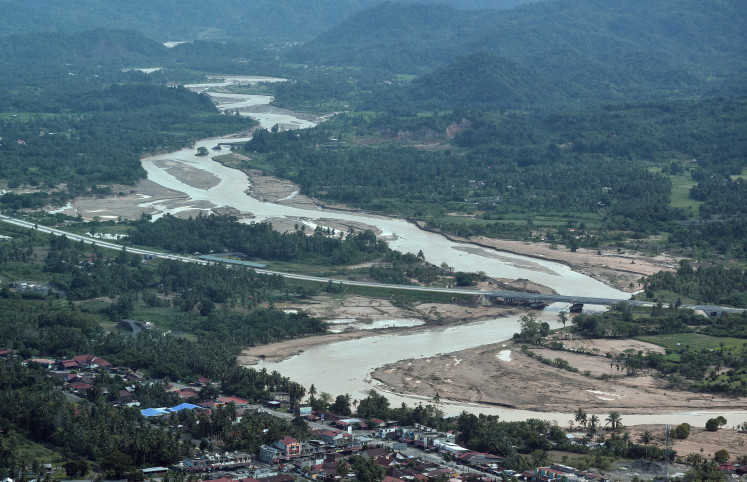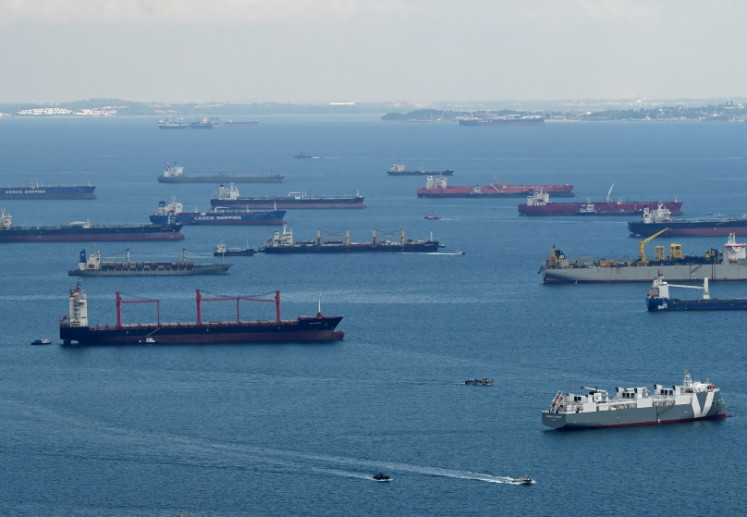Popular Reads
Top Results
Can't find what you're looking for?
View all search resultsPopular Reads
Top Results
Can't find what you're looking for?
View all search resultsIndonesia’s opportunity for growth through a just and timely energy transition
Indonesia’s journey to net zero is vital, but it’s equally imperative that this essential transition follows a just and equitable strategy.
Change text size
Gift Premium Articles
to Anyone
A
s the largest economy in one of the world’s leading high-growth regions, Indonesia’s economic trajectory continues to attract the global spotlight.
At the same time, the country faces complex considerations in carefully balancing the energy trilemma of secure, sustainable, affordable energy to support growth while defining a credible and just energy transition pathway to low-carbon energy.
Indonesia’s economic growth is energized by industrialization across sectors and increasing commodity exports driven by global demand. As the world’s third-largest coal producer and a major producer of nickel and tin, Indonesia’s next steps could determine a shared global future. Our natural resources will be pivotal in enabling global access to minerals that are key to clean energy and the electrification of global value chains.
Indonesia’s journey to net zero is vital, but it’s equally imperative that this essential transition follows a just and equitable strategy. Our transformation must balance and distribute social costs and benefits of climate action equally, in a timely and opportunistic manner across the nation, while managing increased energy use from industrialization in an ambitious and developing nation.
Just and equitable benefits
Indonesia is already facing the impact of extreme, climate-accelerated weather events. In 2019 and 2021, tropical cyclones damaged power transmission networks, with storm surges flooding coastal power plants and affecting thousands of local households.
Climate change not only disproportionately impacts the most vulnerable communities, but failure to address the social impacts of climate transition puts them most at risk of losing out – a shortcoming that could derail the climate agenda.
The energy transition path defined for Indonesia must also leave no one behind. In delivering this inclusive growth, it is imperative that energy transition plans, incentives and implementation recognize and address some key barriers to success:
- Workforce transition and labor rights. Balancing job creation, job loss and labor practices within the value chain of transition-related activities. Shifts in workforce upskilling for high-emitting industries to evolve into green industries.
- Accessibility and equity. Ensure distribution of benefits and liabilities from transition activities beyond the workforce, such as affordable energy access, to households from vulnerable socioeconomic backgrounds.
- Land and community rights. Strong and continuous engagement with communities and local indigenous populations at the frontline of large-scale infrastructure projects, particularly vital in areas where natural resources provide current livelihoods.
- Natural resources and planetary boundaries. It is crucial to quantify the consequential impact of deforestation on biodiversity, human health, food security, particularly for inhabitants of degraded or restored land.
Enabling a just transition
The decarbonization of the energy and power sectors is crucial if Indonesia is to realize its energy transition strategy. There is a clear opportunity to accelerate short- and long-term energy transition efforts, leveraging growing momentum pushed by key actors in the energy ecosystem to adopt cleaner technologies, enabled by enhancement to relevant energy policy.
Electrification of end uses such as transport and home heating will increase significantly as the energy transition progresses, expanding with ownership of appliances, cars, and machines by 2030. Enforcing energy performance standards to enhance energy efficiency, coupled with increased electrification, will help simultaneously lower energy costs and emissions.
Focus on increased efficiency will enable higher demand-side responses, such as incentives to reduce EV charging during periods of high load demand, enhancing the reliability of the overall electricity system.
On the supply side, renewables are envisioned as the backbone of Indonesia’s future power system. Solar PV will be a pivotal technology to scale up and meet this need, given its modular installation and low costs, as well as Indonesia’s rich solar potential. The International Energy Agency (IEA) estimates that solar PV will be the dominant global generation source in most scenarios by 2050, with an average build rate of over 20 GW per year by 2050 to stay within the maximum 1.5 degrees Celsius warming scenario. This needs to be accompanied with initiatives to reduce emissions such as retirement and/or ramping down of fossil-fuel-based generation.
The ability to dispatch these renewables needs to be enabled through investments in the expansion of Indonesia’s transmission system, integrating renewables into the grid with enhanced system management to balance the renewables build-out. Embedding flexibility into the power system will be vital as variable renewable energy sources progressively contribute greater shares of power generation.
The energy transition also represents a remarkable opportunity to attract climate financing and investment for Indonesia. The IEA estimates as much as US$2.4 trillion in investment is needed across Indonesia’s energy system to achieve the 1.5 degrees scenario, with the power sector accounting for 40 percent of total investment needs.
Diverse investment instruments – including public funding, concessional loans, commercial loans, or blended finance – will be needed. These will empower an ecosystem to be able to accommodate varying project requirements and risk – ranging from financing large renewable energy projects to grid and infrastructure, from energy efficiency in homes and business to biofuel and EV charging. It is imperative to ensure that financing is available for projects that are seen as commercially attractive, as well as those that have high social impact but are not as commercially attractive. These financing opportunities should enable the transition, while at the same time allowing synergistic opportunities to spur growth through financing from the private sector.
Furthermore, this needs to be supported by policy enhancements to focus on key energy transition activities, including acceleration of renewable energy development, reducing use of fossil fuel (carbon pricing, early retirement of coal-fired power plants), improvement of the investment climate (including de-risking of high-risk renewable power opportunities), and enabling financing.
Policy enhancement, as we know, is a lengthy process, and requires heightened coordination and collaboration across ministries and relevant policy-making bodies. This needs to be backed by strong and integrated long-term energy plans. An actionable implementation road map can also help, not only defining clear directions but also increasing much-needed certainty for investors.
The time is now
Delivering Indonesia’s essential energy transition will require a concerted effort by all energy industry stakeholders – most importantly policymakers, state-owned enterprises, donors and financiers. These players are critical in empowering energy transition opportunities through the acceleration of renewable energy, guiding a just energy transition for Indonesia.
-- This is the fourth article in a series that examines Indonesia's top 10 priorities in achieving the country’s vision of the future.
***
Yulius Yulius is managing director and senior partner, and Daven Tjandradjaja is associate director at Boston Consulting Group.











